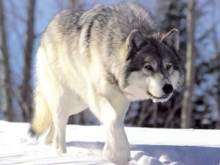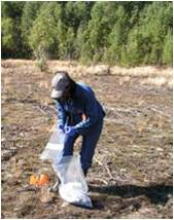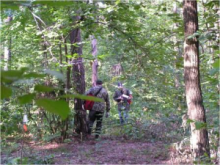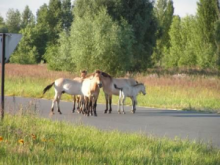The STAR project finished on 31st July 2015 - page no longer being updated
| News and Views of Chernobyl | |||
|---|---|---|---|
 |  |  |  |
Wolves in the Chernobyl dead zone Questions concerning Chernobyl were raised in a recent film about the effects to wildlife and the abundance of animals living in the 30-km zone. Klaus Feichtenberger wrote and directed the film "Radioactive Wolves" and says that he hopes that people who see the film will come away with “a realistic impression of the Chernobyl ecosystem and landscape.” | |||
A shorter version of the film is also available. | |||
Two groups of scientists are divided on the issue of wildlife effects at Chernobyl. One group claims that population abundances and species diversity of wildlife have decreased at Chernobyl. Another group suggests that the positive aspects of human abandonment have resulted in an increase in top predators and wildlife densities at Chernobyl, compared to surrounding areas. Read STAR scientist, Nick Beresford’s perspective here. For a novel focus on Chernobyl If you enjoy “who did it?” crime novels and want to read the only book we are aware of that mentions radioecology, give Martin Cruz Smith’s book "Wolves Eat Dogs" a try. It's a crime novel that takes place in the 30-km zone of Chernobyl, involves radioactive material, and has a radioecologist as a key character! Photo credits: Canis lupus taken by Klaus Feichtenberger, wikimedia Commons. Other photos: CEH. | |||
